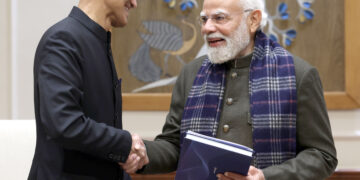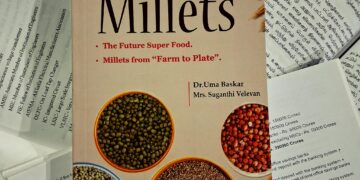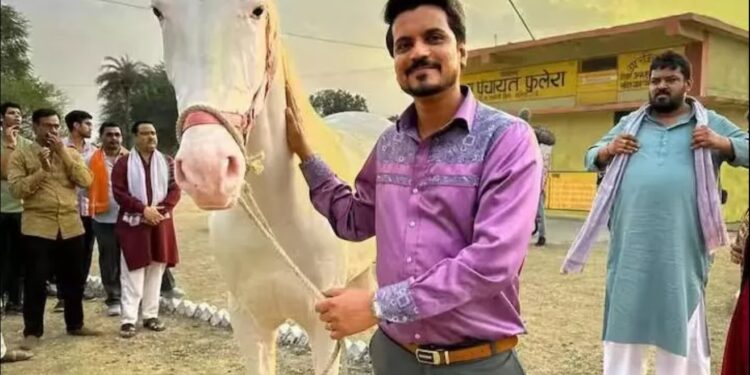MUMBAI — Aasif Khan, the 34-year-old Indian actor known for his roles in popular web series such as Panchayat, Paatal Lok, and Mirzapur, was hospitalized after suffering a heart attack on Monday evening, according to multiple reports. The actor, who is now stable and recovering at Kokilaben Dhirubhai Ambani Hospital in Mumbai, shared an emotional update on Instagram, urging fans not to take life for granted. His health scare has sparked a broader conversation about the rising incidence of heart attacks among young adults in their 30s, a demographic once considered low-risk for cardiovascular issues.
A Wake-Up Call for Young Adults
Khan’s sudden health crisis, reported widely across Indian media, underscores a growing global concern: heart attacks are no longer confined to older populations. Cardiologists and health experts are sounding alarms about the increasing prevalence of cardiovascular diseases (CVDs) among younger individuals, particularly those in their 30s and 40s. According to the Indian Council of Medical Research (ICMR), cardiovascular diseases are a leading cause of death in India, with a notable spike in cases among younger adults. Similar trends are observed globally, with lifestyle and stress-related factors driving the surge.
“Heart attacks in the 30s are no longer an exception,” said Dr. Nishith Chandra, Principal Director of Interventional Cardiology at Fortis Escorts Heart Institute, New Delhi. “These are mostly lifestyle and stress-driven, tipping young people over the edge.”
Key Risk Factors for Young Adults
Experts highlight several risk factors contributing to heart attacks in young adults, many of which are preventable through lifestyle changes and regular health monitoring. Here are the primary concerns for people in their 30s:
1. Lifestyle Choices:
– Smoking and Vaping: Dr. Chandra notes that nearly 90% of heart attacks in younger age groups can be linked to smoking. “If you are smoking a pack a day, you are doubling your risk of heart attack compared to non-smokers,” he said. Vaping, often perceived as a safer alternative, also poses risks due to nicotine and toxic compounds that elevate heart rate and blood pressure.
– Poor Diet: Diets high in processed foods, sugars, and saturated fats contribute to obesity and atherosclerosis, a condition where plaque builds up in arteries, restricting blood flow to the heart.
– Sedentary Lifestyle: Lack of physical activity is a significant risk factor. Experts recommend at least 15-20 minutes of daily exercise to maintain heart health.
2. Stress and Mental Health:
– Chronic stress, common in fast-paced careers like those in entertainment or technology, can elevate cortisol levels, increasing blood pressure and heart strain. Khan’s reported workload, involving back-to-back shoots and brand commitments, may have contributed to his health scare.
– Unexplained anxiety or feelings of unease can also be subtle indicators of cardiac distress, often overlooked in younger individuals.
3. Dehydration:
– Dehydration, often ignored, can thicken blood, forcing the heart to work harder and potentially causing irregular heart rhythms or blockages. “Lack of fluids causes the blood to become viscous, leading to electrolyte imbalances that can trigger arrhythmias or even cardiac arrest,” Dr. Chandra explained.
4. Underlying Conditions:
– Undiagnosed conditions like high cholesterol, hypertension, and diabetes significantly increase heart attack risk. The ICMR notes that risk factors are additive—someone with diabetes who smokes faces a compounded risk.
– Family history of heart disease is another critical factor, with experts recommending earlier screening (from age 25) for those with a genetic predisposition.
5. Post-COVID Effects:
– The COVID-19 pandemic has been linked to an increased risk of heart issues, even in younger populations. While no direct link to vaccines has been established, post-COVID inflammation may exacerbate underlying conditions, according to ongoing research by the ICMR and AIIMS.
Warning Signs to Watch For
Heart attack symptoms in younger adults can be subtle and easily dismissed. Dr. Nasiruddin G, Consultant-Internal Medicine at Fortis Hospital, Cunningham Road, emphasizes that symptoms like nausea, unexplained anxiety, or mild chest discomfort should not be ignored. Other signs include:
– Chest pain or pressure
– Shortness of breath
– Pain radiating to the jaw, neck, or arms
– Excessive fatigue or sweating
“Symptoms in the 30s may be less obvious, but they’re just as serious,” Dr. Nasiruddin said.
Preventive Measures for Heart Health
To reduce the risk of cardiovascular issues, experts recommend the following for young adults:
– Annual Health Check-Ups: Regular screenings, including ECG, treadmill tests, echocardiograms, cholesterol, and blood sugar tests, are crucial, especially post-COVID. Those with a family history should start monitoring earlier.
– Quit Smoking: Eliminating tobacco use, including vaping, is non-negotiable for heart health.
– Balanced Diet and Exercise: A diet rich in whole foods, fruits, and vegetables, combined with regular physical activity, can significantly lower risk.
– Stress Management: Practices like meditation, yoga, or adequate sleep can mitigate stress-related heart strain.
– Hydration: Maintaining adequate fluid intake supports overall cardiovascular function.
Aasif Khan’s Recovery and Public Response
Aasif Khan, who plays the beloved character Ganesh in Panchayat, shared a poignant message from his hospital bed: “Realising after watching this for past 36 hours, life is short; don’t take one day for granted, everything can change in a moment. Be grateful for all you have and all that you are.” His post, accompanied by a photo of the hospital ceiling, resonated with fans and colleagues, including Panchayat co-stars Jitendra Kumar and Neena Gupta, who expressed support and urged him to prioritize recovery.
The actor’s health scare has prompted an outpouring of concern on social media, with fans on X and Instagram sharing messages like, “Take care, Ganesh bhaiya. The show is incomplete without you.” Cardiologists and mental health professionals have also used the incident to raise awareness, emphasizing that even seemingly healthy individuals are not immune to cardiac events.
A Global Health Concern
Khan’s case is not isolated. Other Indian celebrities, including Sushmita Sen and Shreyas Talpade, have faced heart attacks in their 30s and 40s, highlighting a broader trend. Globally, the World Health Organization (WHO) reports that CVDs account for 17.9 million deaths annually, with younger populations increasingly affected due to modern lifestyle pressures. Khan’s experience serves as a stark reminder that heart health is a priority at any age.
As Aasif Khan continues his recovery, his message echoes a universal truth: life is unpredictable, and health cannot be taken for granted. For young adults in their 30s, proactive steps toward a healthier lifestyle and regular medical check-ups could be the difference between prevention and crisis.
For more information on heart health, consult a healthcare professional or visit reputable sources like the WHO or local health authorities.






































